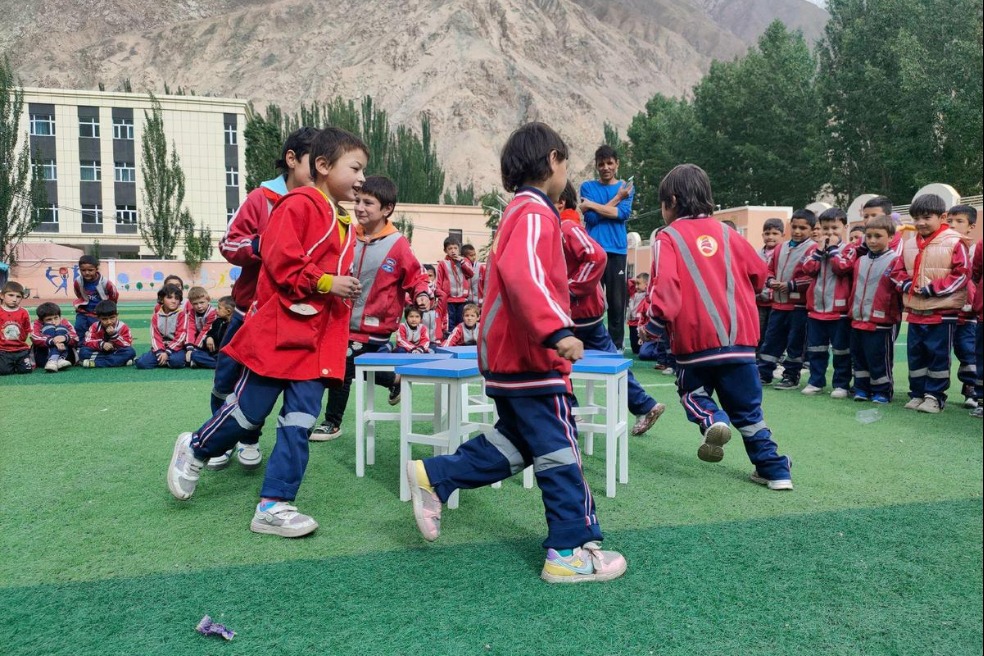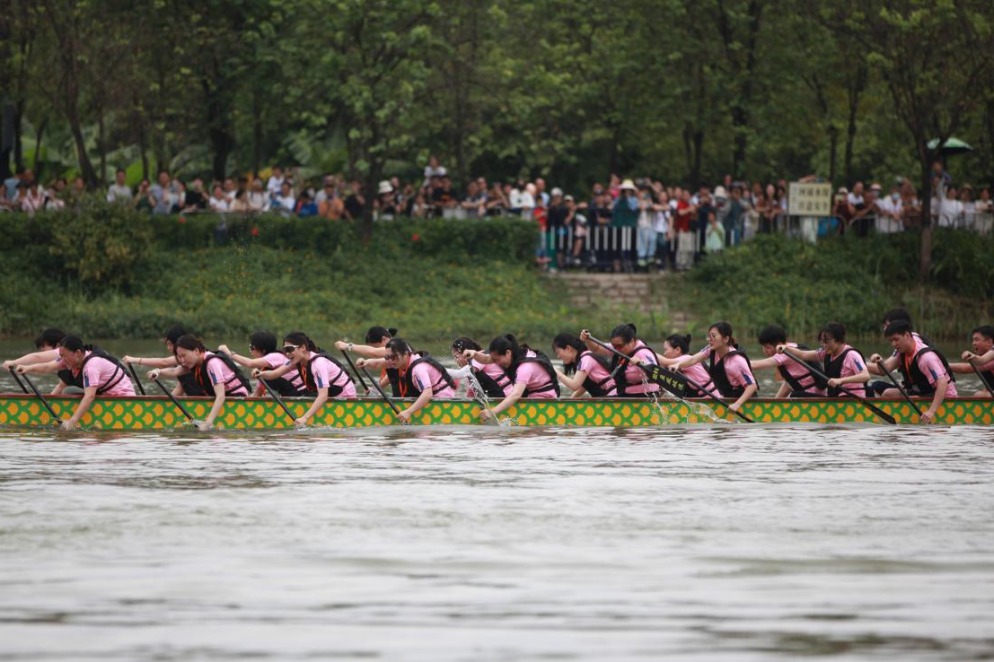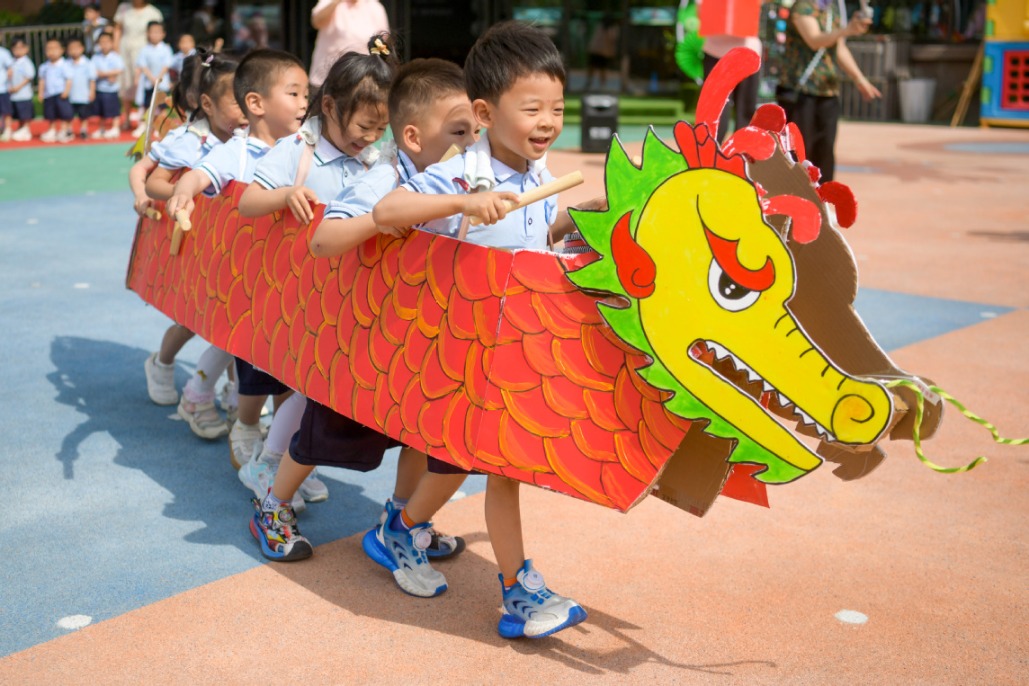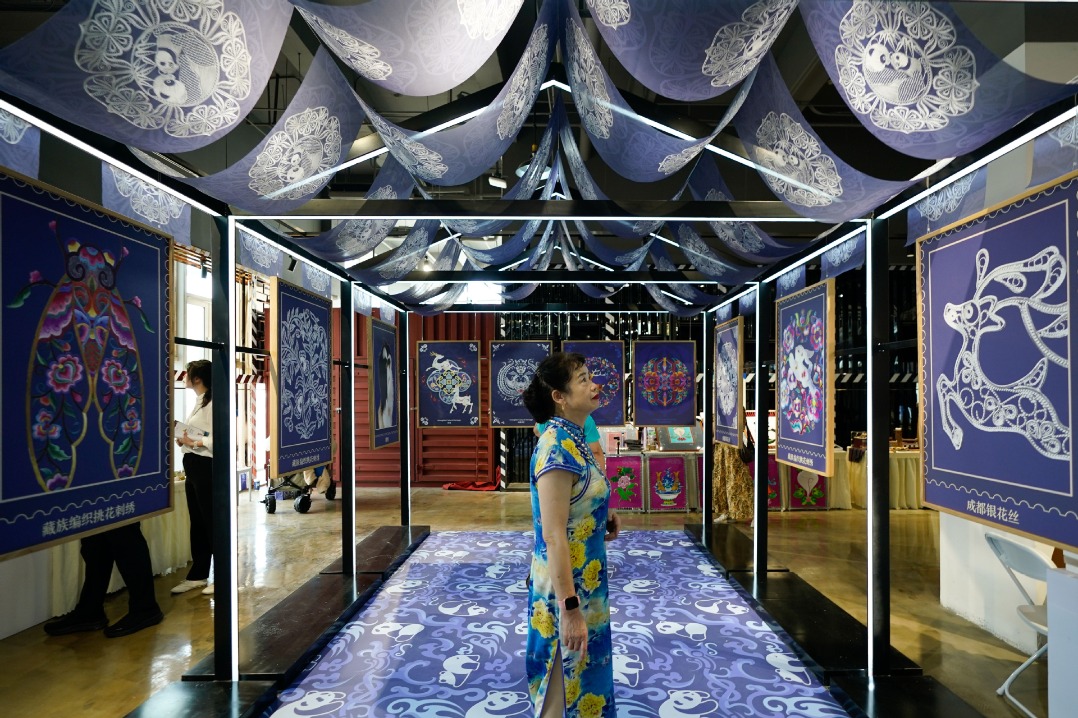Hospitals launch new nursing aide service
Pilot program announced last week brings big relief to family members

China has launched a pilot program at hospitals in deeply aging regions, offering patients the option of relying on nurses and related workers rather than family members or private caregivers for round-the-clock care.
In China, caring for hospitalized patients who have difficulties performing daily activities is traditionally the responsibility of relatives — which often leads to their fatigue and stress — or self-hired caregivers, who can be either costly or lack sufficient training.
The pilot project, announced in a notice released by the National Health Commission last week, is aimed at addressing these issues as China's population continues to age rapidly and an increasing number of people require round-the-clock care.
Public, tertiary hospitals in provincial capitals and major cities with accelerated aging trends will be prioritized to implement the program. Measures will first be carried out in wards that see many patients with high care demands, typically in geriatrics, neurology, cardiovascular medicine and general surgery.
Under the program, which runs until June 2027, hospitalized patients can choose so-called "no-accompany care services", in which daily life care is provided by nursing aides hired by hospitals, freeing family members from their burden.
Nursing aides will aid patients with partial or complete loss of self-care ability and those with limited mobility in activities such as meal assistance, hygiene care and bathing, under the guidance of medical staff.
For example, they will help patients wash their hands before meals, help feed them and handle post-meal cleanup. They will also monitor eating pace and portion sizes and promptly report any swallowing difficulties, nausea or vomiting to medical staff.
The commission stressed that nursing aides must not perform specialized medical or nursing tasks or replace the duties of licensed medical personnel.
Local health authorities will be responsible for training nursing aides to improve their professional expertise, communication skills, and knowledge of quality and safety protocols and infection control. Pilot hospitals must also provide necessary occupational health protection supplies and monitor the aides' health conditions. Additionally, hospitals should streamline the delivery of specimens, drugs and meals to facilitate the aides' work.
"Advanced information technologies such as smart bedside call systems and data collection tools should be fully used to streamline workflows and improve service efficiency," the notice said.
"Inpatient visitation policies should be upgraded to balance compassionate care with maintaining a quiet, orderly hospital environment."
By the end of last year, about 310 million people in China were age 60 or older, accounting for 22 percent of the total population. By 2035, this number is projected to exceed 400 million, or 30 percent.
Before the national program was launched, some regions had already begun regional trials.
At Jiulongpo People's Hospital in Chongqing, 18 nurses manage the 35-bed orthopedic ward and frequently face overwhelming workloads. The addition of three nursing aides six months ago has significantly helped meet demand and enabled professional nurses to focus more on their specialized nursing skills.
He Bo, head nurse of the ward, told China Central Television that nursing aides undergo about six months of training in fundamental medical knowledge and caregiving techniques.
"For our orthopedic department caregivers, we provide specialized instruction to them addressing patient-specific needs, including proper positioning and safe transfer methods," she said.
Zhang Jun, a resident of Wuxi, Jiangsu province, hired a nursing aide at a pilot hospital ward for her 90-year-old mother, who underwent orthopedic surgery last month. The service cost 120 yuan ($16.70) per day.
Zhang said she felt reassured delegating tasks such as repositioning her mother or adjusting the bed's incline, as the aide demonstrated careful attention to proper techniques to avoid injury. However, she still chose to personally accompany her mother most of the time, believing that genuine compassion could not be expected from a stranger.
wangxiaoyu@chinadaily.com.cn
?
- Hospitals launch new nursing aide service
- Vietnamese youths thrilled by study tour in China
- Wanshou palace rises from ruins to reclaim cultural, commercial status
- Dragon boat races thrill visitors, boost local economy
- Chinese researchers release Tianshan watershed streamflow dataset
- Three dead, seven missing after landslide in Xizang





































